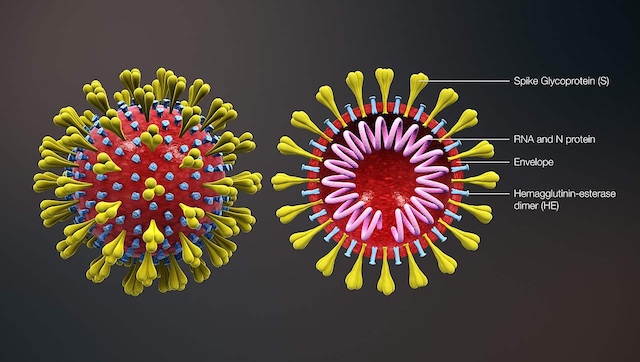SARS-CoV-2, the causative agent of COVID-19, can spread through respiratory droplets when an infected person sneezes, coughs or talks. Studies have shown that the virus enters through the nose and mouth into the lungs and both symptomatic and asymptomatic patients have a high viral load in their nasopharynx and oropharynx. Even though masks reduce the spread of respiratory droplets to an extent, some experts have suggested the use of oral and nasal povidone-iodine (a common antiseptic) to reduce viral load and minimise the risk of transmission of the virus to healthcare workers. The suggestion was inspired by previous studies, which had shown the antiviral effects of the solution on SARS and MERS virus. Now, a group of researchers claim that the solution indeed kills SARS-CoV-2 and may be used as a nasal wash. The findings of their study are published in the peer-reviewed journal JAMA otolaryngology–Head & Neck Surgery. The study For the study, the researchers exposed the COVID-19 causing virus to various concentrations of povidone-iodine solution for 15 and 30 seconds at a temperature of 22 degrees Celcius. A 70 percent ethanol solution was used as a positive control (which they know works against the virus) and water was used as a negative control (which is known to not work against the virus). After the exposure time, the solutions were tested for the presence of the virus. It was noted that the povidone-iodine solution (PVP-I) with a concentration as low as 0.5 percent was capable of killing SARS-CoV-2 within 15 seconds. Solutions up to 1.25 percent were suggested to be well tolerated for short-term nasal use as they did not affect the cilia (fine hair) in the nose. The study suggested that mucus from the nose and other compounds like lipids, extracellular fragments of nucleic acids etc. can act as a sink for iodine and keep it from reaching the infection site. So, the povidone solution concentration has to be kept below the threshold that is harmful to the nose and above the one which is actually effective against the virus. Previous study In vitro efficiency of an oral rinse of PVP-I against the COVID-19 causing virus was demonstrated earlier in June by another group of researchers at the University of Connecticut. The study, published in the Journal of Prosthodontics, had similar results - 0.5 percent PVP-I was effective against SARS-CoV-2 when used for a minimum of 15 seconds. The research team suggested rinsing the patient’s mouth with a 9.5 mL water along with a 0.5 mL of the commercially available 10 percent PVP-I solution for 30 seconds before conducting any dental procedure. The solution is not to be given to pregnant women, those who are allergic to iodine and those with thyroid problems. Dr Avinash Bidra, clinical associate professor of prosthodontics at the School of Dental Medicine, University of Connecticut, and corresponding author of that study, had said in a news release by the University, “We believe this has immediate and tremendous dental public health impact for patients and for dental professionals, amidst the ongoing pandemic.” For more information, read our article on How to protect yourself against COVID-19 infection. Health articles in Firstpost are written by myUpchar.com, India’s first and biggest resource for verified medical information. At myUpchar, researchers and journalists work with doctors to bring you information on all things health.
For the study, the researchers exposed the COVID-19 causing virus to various concentrations of povidone-iodine solution for 15 and 30 seconds at a temperature of 22 degrees Celcius.
Advertisement
End of Article


)

)
)
)
)
)
)
)
)



